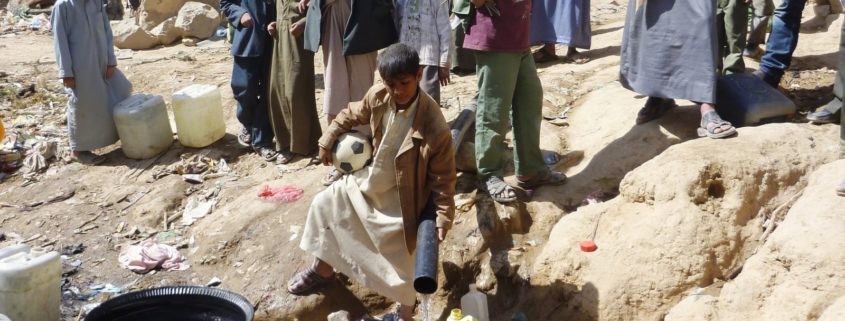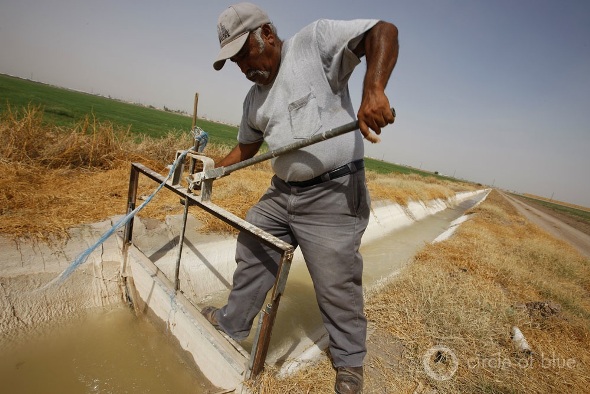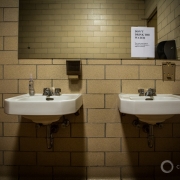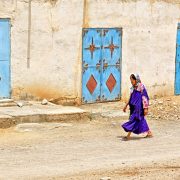Clean Water Runs Out and Yemen Hovers on Edge of Another Epidemic
Yemen’s cholera outbreak is likely to grow worse following a crippling import blockade.
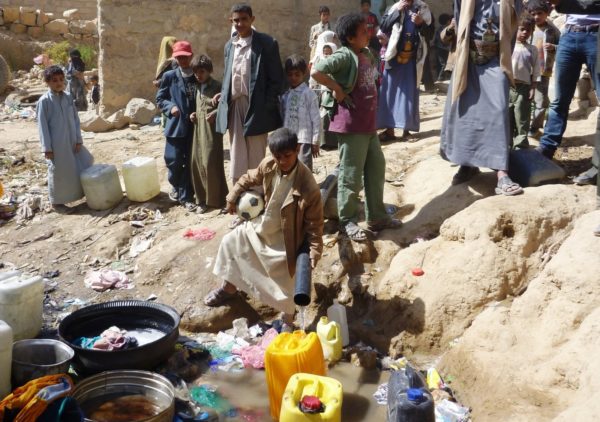
Yemen: Access to water. (Photo by ECHO/T. Deherman)
The Rundown
Yemen’s cholera outbreak is likely to grow worse following a missile strike on Saudi Arabia, which spurred the Saudi-led coalition to enact a crippling import blockade.
Conditions in Yemen are collapsing. Cases of cholera, diphtheria, and diarrhea are on the rise. Health and sanitation services are dwindling. An increasing number of civilians are running out of food and water.
The blockade began after a missile was fired from Yemen into Saudi Arabia on November 4. The energy needed to pump clean water in nine major cities has run out, opening the door for another wave of illness.
“Aid agencies such as ours and the UN are only able to provide a fraction of the food, fuel and water that is needed. It’s imperative that commercial supplies are able to get in,” said Carolina Anning, a representative of Save the Children.
Since March 2015, a deadly civil war between Houthi rebels and a Saudi-led military coalition has ravaged Yemen, leaving millions of Yemenis without food, water, and medicine. In October 2016, cholera was detected in the capital city of Sana’a. The outbreak slowed after six months, but surged anew in late April 2017, ten days after the capital’s sewer system failed. The waterborne disease spread quickly due to Yemen’s devastated water, sanitation, and healthcare infrastructure, soon becoming the largest cholera outbreak on record.
If the blockade continues, fuel shortages could deprive up to 8 million civilians of clean water, according to a recent report by Oxfam. Another 16 million Yemenis already lack access to clean piped water, meaning more than 80 percent of the population might soon be without a steady, safe water supply.
Last week, the blockade was eased slightly to allow humanitarian relief into the country. But on Friday, Saudi Arabia claimed that it intercepted a second missile fired toward the country by Houthi rebels in Yemen. The ongoing unrest leaves the Saudi decision to ease or strengthen the import blockade uncertain. Two United Nations cargo vessels full of wheat and health supplies sit off the coast of Al-Hodeidah port, unable to dock.
By The Numbers
959,810 Number of cholera cases reported since April 27, 2017, according to the latest WHO update. Total cases are expected to reach 1 million by the end of the year.
2.5 million Number of Yemenis without access to clean water after nine cities ran out of the fuel needed for pumping. Several health facilities have been forced to close due to the water shortages.
750,000 liters Amount of diesel fuel that the Red Cross purchased to sustain water services in the cities of Hudaydah and Taiz. The organization called the move “exceptional and unsustainable.”
7 million Number of people at imminent risk of starvation due to the import blockade. Yemen could face the world’s worst famine in decades if commercial imports are not allowed into the country soon.
50,000 Number of Yemeni children expected to die of starvation and disease by the end of the year.
Resources And Further Reading
Cholera cases in Yemen (World Health Organization)
The horrors of Yemen’s spiralling cholera crisis (BBC)
Millions of Yemenis days away from losing clean running water (Relief Web)
Ravaged by Cholera, Yemen Faces 2nd Preventable Scourge: Diphtheria (The New York Times)
Red Cross forced to buy own emergency fuel in Yemen because of Saudi blockade (The Independent)
Saudi Arabia ‘intercepts another Houthi missile’ (Al Jazeera)
Saudi Arabia lifted its blockade of Yemen. It’s not nearly enough to prevent famine. (The Washington Post)
Saudi easing of Yemen siege ‘no cause for celebration’ (Al Jazeera)
Yemen: Cholera Response Weekly Epidemiological Bulletin: W47 2017 (November 20 – 26) [EN/AR] (Relief Web)
Yemen ‘one of the most dangerous places on earth’ for children: UN (ABC News)
Yemen war: ICRC buys fuel to pump water in stricken cities (BBC)
Kayla Ritter is a recent graduate of Michigan State University, where she studied International Relations and Teaching English to Speakers of Other Languages. She is currently based in Manton, Michigan. Kayla enjoys running, writing, and traveling. Contact Kayla Ritter

